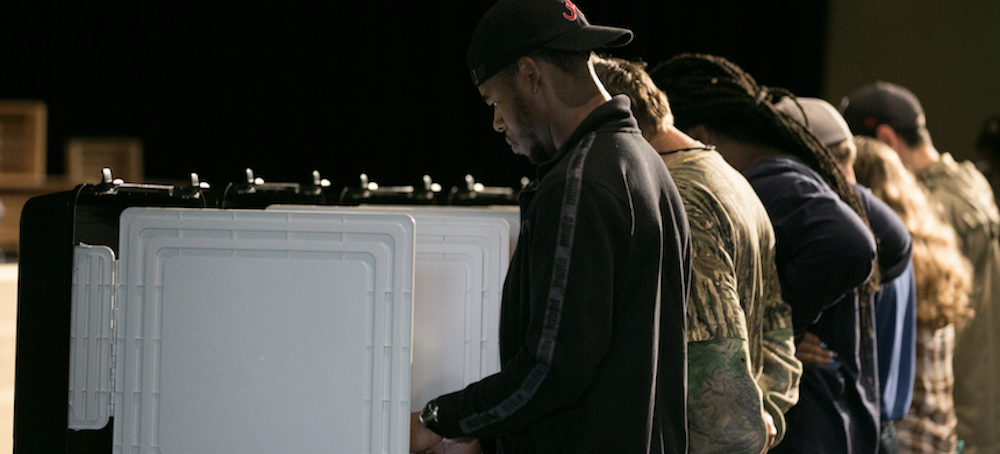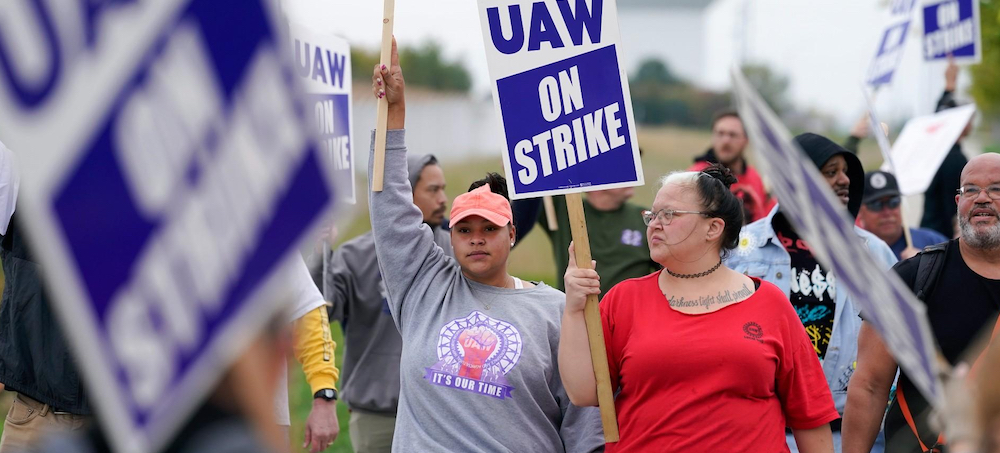48 Hours To Go, Situation Dire
We need a strong finish to make this work and time is running out. We love you, you love RSN but we have to make this work and we have to make it work now.
Who can actually donate?
Thank you sincerely in advance.
Marc Ash
Founder, Reader Supported News
If you would prefer to send a check:
Reader Supported News
PO Box 2043 / Citrus Heights, CA 95611
Follow us on facebook and twitter!
Live on the homepage now!
Reader Supported News
The same right-wing media ecosystem that has faceplanted on the pandemic.
Being our semi-regular weekly survey of what’s goin’ down in the several states where, as we know, the real work of governmentin’ gets done, and where the boys have finally made it through the wall.
During the McMinn County board’s discussion of “Maus,” multiple board members discussed redacting profanity or said they did not object to teaching the history of the Holocaust. One of the board members, Mike Cochran, said he objected to the language and depiction of nudity. “We don’t need this stuff to teach kids history,” he said, according to the minutes. “We can teach them history and we can teach them graphic history. We can tell them exactly what happened, but we don’t need all the nakedness and all the other stuff.”
It is truly impressive, in a dark and stormy way, how the Right’s media octopus can gin up a national controversy over absolutely nothing. This whole thing began with an attack on the teaching of critical race theory in elementary and secondary schools, where it is not taught at all and never has been. Since then, the book-banners have run amok:
In Virginia, the Spotsylvania County School Board voted unanimously last year to have books with “sexually explicit” material removed from school library shelves. In York County, Pa., teachers and students protested against and overturned a ban on a selection of books told from the perspective of gay, Black and Latino children. And Republican lawmakers in Texas have pushed to reframe history lessons and play down references to slavery and anti-Mexican discrimination.
In Indiana, the yahoos in the state House of Representatives are taking a second try at pushing through a bill that would micromanage classroom discussion to a preposterous extent. The first one crashed and burned when its primary author opined that all political discussion in class should be scrupulously neutral, even a discussion of Nazism, on which history has rendered a fairly decisive verdict.
In Louisiana, the state House of Representatives passed a bill mandating that the Holocaust and World War II be taught in the public schools—take that, Indiana—but balked at an amendment that would have mandated instruction in important moments in Black history. This is a deadly combination for public education: parents plus legislators, both groups now subject to the whims of a media industrial complex that can’t even get it right on a worldwide pandemic.
Let us return to Tennessee for this week’s very special episode of Adventures in Gerrymandering, in which the Tennessee legislature has managed to leave the city of Nashville without a member of Congress to call its own, occasioning Democratic Congressman Jim Cooper’s retirement. From the Tennessean:
Cooper announced his decision Tuesday afternoon, less than 24 hours after legislative Republicans voted in the House to approve the plan to divide Davidson County into three congressional districts. The Republican supermajority's plan sailed through committees and a Senate vote earlier this month…
Through the redistricting process, Cooper pleaded with planners to keep Davidson County whole, calling a plan to split the booming area "pure folly…The simplest rule is if it ain’t broke, don’t fix it," Cooper said earlier this month. "We’re clearly one of the most successful cities in the whole nation. Why mess with that formula of success?” Days later, Republicans in the Tennessee General Assembly revealed an aggressive plan to crack the county, parceling pieces of Cooper's 5th Congressional District into majority white, historically Republican 6th and 7th districts.
Remember that Chief Justice John Roberts, writing for the majority in Rucho, said that what was clearly happening was not happening and that, even if it were happening, the courts had no place in devising a solution to it. Such a shame, but that’s the way it goes.
And we conclude, as is our custom, in the great state of Oklahoma, whence Our Man in the Bahamas, Friedman of the Plains, sends us the tale of how government works, but not for long. From OKPolicy.org:
The latest report on Oklahoma’s budget transparency showed that during the 2021 Legislative Session, Oklahoma lawmakers unveiled the Fiscal Year 2022 budget (for the year starting July 1, 2021) in mid-May during the last weeks of session. This provided Oklahomans — and even many legislators — only three days between the public unveiling of the $7.7 billion budget and Gov. Stitt’s approval three days later. OK Policy found that the average state deliberated about their budget for 82 days. The three days Oklahoma used for budget deliberations was the nation’s third shortest such timeframe last year, behind only Utah and Nevada at two days and one day, respectively.
In Massachusetts, we generally need the jaws of life to pry our legislators out of the State House every spring, so this form of quik-stop bill-passing is unfamiliar to me. Are there chips and snacks near the cashier? Lotto tickets?
This is your democracy, America. Cherish it.
 A woman uses her phone. (photo: Getty Images)
A woman uses her phone. (photo: Getty Images)
Israel used the NSO Group’s software as a tool of diplomacy. The F.B.I. wanted it for domestic surveillance. Then everything soured. Here are highlights of a New York Times Magazine investigation.
The software, Pegasus, made by an Israeli company, NSO Group, has been able to track terrorists and drug cartels. It has also been used against human rights activists, journalists and dissidents.
Now, an investigation published Friday by The New York Times Magazine has found that Israel, which controls the export of the spyware, just as it does the export of conventional weapons, has made Pegasus a key component of its national security strategy, using it to advance its interests around the world.
 Voters at a polling precinct. (photo: Jessica McGowan/Getty Images)
Voters at a polling precinct. (photo: Jessica McGowan/Getty Images)
The proposal would end all voting by mail and allow legislature to reject election results, part of nationwide rightwing effort to overturn elections
The measure would require the state legislature to convene after primary and general elections to review the ballot counting process and “shall accept or reject the election results”.
The proposal does not require lawmakers to find evidence of fraud or lay out any factors they would have to consider in order to overturn an election. If the lawmakers were to reject the results, any voter in Arizona would be allowed to petition a local judge to hold a new election.
The same measure would also require Arizona voters to give an excuse if they want to vote by mail, even though mail-in voting has long been used by the vast majority of voters in the state. It also would restrict voting to election day and prevent the use of vote centers, essentially mega voting precincts where anyone in a county can vote, regardless of where they live.
One of the co-sponsors of the bill is Mark Finchem, a state representative who believes the 2020 election was stolen, has ties to the Oath Keepers, and was at the Capitol on 6 January. Finchem is running to be Arizona’s chief election official and Donald Trump has endorsed him.
“We need to get back to 1958-style voting,” John Fillmore, another Republican state representative who introduced the bill said on Wednesday, according to the Arizona Republic. Arizona had a racist literacy test in place in 1958, the Republic noted. The Voting Rights Act, which wiped out many blatant efforts to keep Black people from the polls, passed in 1965.
Fillmore did not respond to an interview request from the Guardian.
“What’s clear from this bill is that there are some members of the Arizona legislature who are prepared to replace the judgment of Arizona voters with their own,” said David Becker, an election administration expert who leads the Center for Election Innovation and Research.
It’s unclear if the measure will ultimately pass. Republicans hold a 16-14 majority in the state senate, which means, if Democrats unanimously oppose it, any Republican could kill the bill by voting against it. A Republican bill last year that would have allowed the legislature to override the results of a presidential election stalled.
“I can’t imagine that they will move forward with that idea because I think the outrage from the community would be pretty big,” said Martin Quezada, a Democrat in the state senate. “But the fact that they’re even talking about this issue just shows what kind of a space that we are in right now.”
Even if Republicans drop the provision allowing the legislature to overturn elections, Quezada said, the measures that roll back vote-by-mail access in Arizona would still be extreme.
“The impact would be tremendous. It would drastically change the way elections work in the state of Arizona. I mean right now the overwhelming majority of voters vote by mail,” he said. “The turnout overall would be suppressed tremendously … The process of actually showing up at the polls to vote would be so frustrating and time-consuming that many people would feel even if they did want to vote, it’s just not worth it to deal with that type of problem.”
The proposal comes as there is increased alarm over Republican efforts across the country to make it possible for partisan actors to overturn election results, something scholars have begun calling election subversion.
“This bill follows a worrisome anti-democratic trend of legislation introduced in statehouses across the country that would make it possible for legislatures to overturn election results they don’t like,” said Jessica Marsden, a lawyer at the watchdog Protect Democracy who is tracking election subversion bills across the country.
“This brazen power grab reveals the cynical strategy behind the deceptive big lie movement: to create a pretext for interfering in election outcomes by undermining confidence in elections.”
The bill also underscores how Arizona, where Joe Biden narrowly defeated Donald Trump in 2020, has become a hotbed of conspiracy theories about the election. The state senate authorized an unprecedented months-long post-election review of 2.1m ballots in the state’s most populous county that fanned lies about the 2020 race but ultimately affirmed Biden’s win.
Some provisions in the legislation appear to be connected to conspiracy theories that flourished during that review, including the debunked belief that voting equipment was tampered with and ballots had bamboo fibers in them. The bill would require a hand count of ballots within 24 hours of an election and require the use of a hologram or other unique mark to verify the authenticity of ballots.
“They keep inventing solutions where there are no problems,” said Tammy Patrick, a senior adviser at the Democracy Fund and a former election official in Arizona.
Changing the paper used for ballots would probably make it more costly for counties to run elections and more difficult to reprint ballots if there is an error in the printing process, she said. And requiring election officials to complete a hand count of ballots within 24 hours just isn’t feasible in Arizona, where the ballot can be extremely long, with dozens of races.
“It’s not feasible, it’s not accurate, and it’s cost prohibitive … To think that you can do a full ballot hand count within 24 hours is ridiculous,” she said. Humans are also prone to make counting errors. “Everyone who has done a hand count will tell you that machine counts are more accurate,” Patrick said.
Jennifer Morrell, a former election official who now works as a consultant and election administration noted that Cyber Ninjas, the firm that conducted the unusual election review in Arizona, took months to count ballots by hand.
“The idea of hand counting all ballots within 24 hours of election day is completely unrealistic and shows how little the bill’s sponsors understand about the mechanics of counting ballots,” she said. “Besides the time frame being unrealistic, the process of counting by hand is prone to error. That’s part of why it takes so long. You have to go at it in a way that is slow and methodical to get it right and include enough time to verify the counting was done correctly.”
“Hand counting ballots is problematic to begin with. The time frame they’re suggesting is completely unrealistic,” said Jennifer Morrell, a former election official who now works as a consultant on election administration.
Earlier this week, Republicans in the state legislature advanced several other bills that would change election processes in the state. One bill would expand the threshold for an automatic recount from 0.1 percentage point to 0.5 (Biden defeated Trump by 0.3 points). Other bills would require the state to make ballot images public after an election while another would end all mail-in elections for school boards and cities.
 Pro-choice protesters. (photo: Sergio Flores/Getty Images)
Pro-choice protesters. (photo: Sergio Flores/Getty Images)
Lawmakers in at least 29 states, anticipating a new legal landscape, have filed measures to restrict abortion.
With the U.S. Supreme Court expected to decide in the coming months whether to upend its nearly 50-year precedent that established a constitutional right to abortion nationwide, lawmakers in Republican-led states across the country have moved aggressively in recent weeks to lay the groundwork for a new era of abortion restrictions.
While it’s possible that the high court either will overturn Roe or leave the precedent fully intact, many legal scholars and advocates on both sides anticipate the justices will land somewhere in the middle, instantly changing the standard for abortion legislation. Antiabortion lawmakers are trying to predict what the Supreme Court might do as they craft laws designed to take effect soon after a ruling, whatever the justices decide.
“We don’t know exactly what that decision is going to be yet,” said Arkansas state senator Jason Rapert (R), who has been jockeying to pass a bill modeled after the Texas law, which banned abortion after six weeks. “Until that decision is released, we need to pick up every tool to save babies’ lives — and do all we can, whenever we can.”
The push for new laws reflects the pent-up energy among antiabortion lawmakers who have been constricted for decades by parameters established in Roe v. Wade and Planned Parenthood v. Casey, which declared laws unconstitutional if they impose an “undue burden” on someone seeking an abortion before their fetus is viable outside of the womb. The court’s much-anticipated ruling this year in Dobbs v. Jackson Women’s Health Organization relates to a law passed in 2018 in Mississippi, which poses a direct threat to Roe because it bans abortion at 15 weeks of pregnancy except in cases of medical emergencies or fetal abnormalities. Fifteen weeks is significantly before viability.
So far, lawmakers in at least 29 states have filed antiabortion legislation in their 2022 legislative session. Those efforts have helped inspire a push in the other direction in some states where Democrats hold power, with pro-abortion rights legislators in at least 17 states filing bills that aim to protect abortion access, according to Planned Parenthood.
States are “building the framework they want to see,” said Catherine Glenn Foster, president of Americans United for Life, a national organization that works with state legislators to draft antiabortion bills.
All told, if Roe falls, 26 states are “certain or likely” to ban abortion, according to the Guttmacher Institute, a nonprofit research center that supports abortion rights.
Many of those states already have a post-Roe legal infrastructure in place. Twelve states, for instance, have “trigger bans” that would ban abortion outright as soon as Roe is overturned, while five others have bans still on the books from before Roe took effect, which lawmakers could bring back to life. Other states have passed laws banning abortion after six weeks of pregnancy — measures that are currently stalled or have been ruled unconstitutional in the courts.
Among the most sweeping antiabortion efforts introduced this session are measures that would create trigger bans in four more states: Nebraska, Ohio, Oklahoma and South Carolina. Lawmakers in Indiana have proposed a bill that would prompt a special session if the Supreme Court rolls back abortion protections significantly, where legislators could ban abortion or pass other abortion restrictions.
The debates unfolding in state capitals are likely to add to an emerging focus on abortion in this year’s midterm elections, particularly with the court’s ruling expected in June, just months before voting ends in November. This issue has drawn the attention of several prominent Republican governors with national ambitions, including Florida Gov. Ron DeSantis and South Dakota Gov. Kristi Noem, who pledged this month to protect “both unborn children and their mothers” until the day that Roe is overturned.
The coming retirement of Justice Stephen G. Breyer will not affect the immediate fate of Roe, which is expected to be decided before he leaves the bench, nor will it alter the ideological makeup of the court, given that he is likely to be replaced by a fellow liberal. But the spectacle of partisan confirmation hearings in a 50-50 Senate, with abortion and other social issues at the forefront, is also expected to reverberate across the political landscape.
A workaround until Roe falls
Much of the recent action is centered on replicating the Texas law, known as Senate Bill 8, which evaded the Roe framework by empowering private citizens to enforce the law through civil litigation.
Legislators in eight states — Ohio, Florida, Missouri, Alabama, Arkansas, Oklahoma, Arizona and Wisconsin — have looked to duplicate Texas-style bans since September, with several more states expected to introduce similar legislation in the coming weeks. In South Dakota, Noem introduced draft text of a similar bill on Jan. 21, while antiabortion activists across the country rallied at the March for Life.
Kristin Ford, the vice president of communications and research at NARAL, a national abortion rights organization, said Texas copycat bills are “basically a workaround.” Although the bills are unlikely to take effect before the Supreme Court’s decision, she said, these bills could potentially be implemented even if the high court upholds Roe.
“The anti-choice movement won’t need a workaround once Roe falls, but for now they’re using these creative and highly troubling tactics to get their agenda through,” Ford said.
In December, the Supreme Court announced its decision to allow Texas abortion providers to challenge S.B. 8 but left the law in place in the meantime. Although many considered the ruling a “narrow victory” for abortion rights, some antiabortion lawmakers saw the decision to let the law stand as a green light for their respective bills.
By offering critiques of the Texas law in their decision, said Missouri state representative Mary Elizabeth Coleman (R), the justices essentially offered “lightning-fast feedback” on how S.B. 8 could be improved.
Over the next few weeks, Coleman said she’ll be working to ensure the strongest possible version of her bill makes its way through the Missouri legislature. Her plan would ban abortion after cardiac activity is detected on an ultrasound.
As June approaches, Coleman said, states should have “as many options in place as possible to protect the unborn.”
15 weeks: A Republican ‘compromise’
Not all GOP lawmakers are ready to make the Texas law their own, with some citing concerns about endorsing what many have called “vigilante justice.”
West Virginia and Arizona lawmakers have also moved to ban abortion at 15 weeks, and Iowa lawmakers have proposed a bill that would ban abortion after 12.
Florida was the first state where legislators introduced a Texas-style antiabortion law, doing so in September. But four months later, several leading lawmakers introduced what they’re casting as a more moderate version. That version would ban abortion after 15 weeks of pregnancy, like the Mississippi law at issue in Dobbs, without the Texas enforcement method. Asked why Florida lawmakers had settled on proposing a 15-week cutoff, Rep. Erin Grall (R), who is sponsoring the measure, said she wanted to mirror the law before the Supreme Court.
“I believe that we have a unique opportunity in the fact that the Supreme Court is considering 15 weeks right now,” Grall said in a committee hearing Jan. 19. “This would allow Florida to save as many babies as possible, as soon as possible after that decision is made.”
How Mississippi ended up with one abortion clinic and why it matters
The Texas-style enforcement method “gave most of us pause,” said Florida Sen. Kelli Stargel (R), who introduced the 15-week ban in the senate. “I think this is the right compromise.”
DeSantis, who had been mostly silent on the Texas copycat bill introduced in Florida, voiced his support for the 15-week ban, saying that he found the bill “very reasonable.”
Abortion rights advocates say they are especially worried about the potential change in Florida, which currently allows abortion up to 24 weeks and has no mandatory waiting period, making it a destination for people seeking later-term abortions throughout the Southeast.
A 15-week ban in Florida would be “devastating” for patients in states such as Georgia, Louisiana and Alabama, said Olivia Cappello, the press officer for state media campaigns at Planned Parenthood. Patients who are further along in their pregnancies than 15 weeks would have to travel to North Carolina for care, she said.
States as abortion destinations
The push in GOP-led states have been matched, in some cases, by efforts in Democratic-run places to create abortion rights safe havens.
New Jersey Gov. Phil Murphy this month signed the Freedom of Reproductive Choice Act, making New Jersey the 15th state to codify the right to abortion.
“Now, once I sign this bill, regardless of whether the Supreme Court overturns Roe v. Wade, New Jersey’s position in supporting the right to reproductive autonomy will remain clear and unchanged,” Murphy said.
A similar amendment is moving through the Vermont legislature. If passed, Proposition 5 will go before Vermont voters in November.
Other Democratic states are positioning themselves as abortion destinations, trying to pass laws that will allow them to better serve people traveling to their abortion clinics from antiabortion states. In Maryland, for example, state legislators are planning to introduce the Abortion Care Access Act, which would allow nurse practitioners and nurse midwives to perform abortions, along with physicians.
“Looking at what might happen in the Supreme Court, we are expecting to see pressure from surrounding states,” Maryland state delegate Ariana Kelly (D) said at a Jan. 20 news conference. Abortion access could be under threat in West Virginia, Pennsylvania and Virginia, she said.
“Maryland is going to be a place that’s going to be providing a lot more abortion care."
 Members of the United Auto Workers strike outside of a John Deere plant in Ankeny, Iowa. (photo: Charlie Neibergall/AP)
Members of the United Auto Workers strike outside of a John Deere plant in Ankeny, Iowa. (photo: Charlie Neibergall/AP)
Just 10.3% of American workers were union members last year, tied with 2019 for the lowest number on record. Membership has been dropping for decades.
Yet if you read the headlines, that future appears brighter.
Starbucks workers formed their first union in the U.S. last December. Strikes at John Deere and Kellogg's ended with better worker contracts. Last November had twice as many active strikes as the summer months. Approval of unions has reached a 56-year-high.
A tight labor market has given workers more leverage, while attempts to unionize some of the most recognizable American brands like Amazon have brought national attention to unions.
It would be too much to call it a union resurgence. But labor supporters see the beginning of an emboldened labor movement — and an end to the long decline of union clout.
"There are things happening now that we have not really seen in the labor movement in generations," said Cedric de Leon, director of the labor center at the University of Massachusetts, Amherst. "I really believe that we're on the verge of another upsurge."
Unions uniting
Before her coal miner husband went on strike against Warrior Met Coal, Cheri Goodwin never really paid attention to labor issues.
Now, she's planning on volunteering at other strikes across the country.
"When this is over, if there's other strikes, we're heading out to help them," Goodwin said. " 'Cause this is a hard fight and we're not done with this."
Last April, about 1,100 coal miners in Brookwood, Ala., went on strike against Warrior Met Coal, which specializes in coal used to make steel. February will mark the 11th month of the strike.
In 2016, steel prices were at one of their lowest points since the Great Recession. That led to the owner of the local mines, Walter Energy, declaring bankruptcy. Warrior Met Coal took over and told the workers they would need to accept a cut in pay and benefits to keep the mines open, with plans to revisit the contract after five years. The miners agreed.
After those five years, steel prices were much higher. But Warrior Met Coal's new offer would not make up for what workers lost. Rather than accept that, the miners walked off the job.
Miner Jeffrey Fleenor says they're like a lot of workers across the country – fed up.
"People's wages and benefits and stuff have slowly eroded, while profit margins of companies have got higher and higher," he says. "They're tired of having to work their lives away and not being able to enjoy them because you're having to work all the time."
The frustration has led to solidarity, according to some labor experts, as high-profile strikes and union campaigns have connected labor groups across the country.
After a strike at four Kellogg's Co. breakfast cereal plants ended in a new contract, the union representing those workers donated part of their strike fund to the Warrior Met Coal strikers. Other unions and activists have been sending goods and cash, used to write checks for the miners and resupply the union's pantry.
"We would have never made this pantry last this long if it weren't for all the support," Goodwin said. "Every single time we get anything, it is like, 'They don't even know us. But they know what we're fighting for.' "
At least a few striking miners are already involved in another labor fight — the one at the Amazon warehouse in Bessemer, Ala. Braxton Wright says he's one of at least six miners who took a job there to cover bills.
He initially applied as a joke. Surely Amazon, with its strong anti-union stance, wouldn't hire a man who's been on both the news and social media praising a union just a 30 minute drive away. But he began working at the warehouse on Sept. 4.
"I started pushing for the union and talking about the union from Day One," Wright said. "Now I think some of them kind of regret hiring me."
Early last year, the Retail, Wholesale and Department Store Union tried to unionize the Amazon warehouse. Celebrities like Danny Glover and politicians like Bernie Sanders came to Bessemer to support the effort.
Despite the national and international headlines, workers voted more than 2 to 1 against unionizing. But a federal labor official ruled that Amazon's anti-union tactics tainted the vote. Ballots for a new mail-in election will go out next Friday and be counted on March 28 – one day short of a full year since the end of the first vote.
Amazon warehouses are known for a high turnover rate – roughly 150% a year, according to The New York Times. Wright says whether at a warehouse or a mine, workers want the same things — a good-paying job they can stay at.
"Not just a job, but turn it into a career," Wright said. "Make it something where you can stay and retire. Not just jump from door to door."
'The Future Is Open'
While workers may be excited, that's yet to translate into more elections to join unions, according to data from the National Labor Relations Board.
Labor experts say unions clearly need to pick up more election wins and step up their organizing efforts. Victories at big names like Starbucks do a lot to galvanize activists and lead to more stores attempting to unionize.
Still, halting and reversing decades of union declines takes more than organizing store by store.
"You can't really organize yourself out of that kind of hole on a workplace-by-workplace basis," John Logan, director of labor and employment studies at San Francisco State University, said. "To stand in the same place, unions have to be recruiting several hundred thousand new members per year."
Labor advocates say unions need a large national movement. They point to the 1930s as an example. Unions started the decade in decline, dropping to 3 million members from 5 million in the early 1920s. But by the end of the decade, unions were booming.
Much of that came from the pro-union Roosevelt administration and the 1935 National Labor Relations Act. But large strikes and widespread public support helped lift unions to one of their strongest points in the country's history.
Labor professors believe the ingredients for another labor revival to happen again are there – it's now up to unions to capitalize on them.
"These are dark times," Stuart Eimer, co-chair of the department of sociology at Widener University, said. "But the future is open."
 Palestinian boys watch as Israeli excavators demolish a Palestinian apartment block. (photo: Mostafa Alkharouf/Anadolu Agency)
Palestinian boys watch as Israeli excavators demolish a Palestinian apartment block. (photo: Mostafa Alkharouf/Anadolu Agency)
Israel is taken to the International Criminal Court as it continues to demolish Palestinian homes in the occupied territories.
The family of 15 was forcibly evicted by Israeli police while six of those injured required hospitalisation, according to the Red Crescent. Hundreds of Palestinians are facing forced expulsion from homes in East Jerusalem, which Palestinians want to be their future capital.
But one family, the Salhiyehs, is taking the Israeli authorities to the International Criminal Court (ICC) after they were evicted from their home in Sheikh Jarrah in East Jerusalem last week, and the subsequent destruction of their home by the Jerusalem Municipality.
“There is no justice, as an Israeli I don’t believe in my country any more. They have destroyed my life,” Lital Salhiyeh, 40, told Al Jazeera.
Last week Lital’s husband Mahmoud, 43, several of their sons and their friends staged a demonstration on the roof of their house in Sheikh Jarrah, threatening to blow themselves up with a gas canister after the Israeli authorities attempted to evict them from the home they have lived in for decades.
Several days later, during a cold and rainy night, Israeli special forces raided their home, arrested them at gunpoint, and beat them up. They were taken to prison for several days before their lawyer secured their release on bail.
Homes destroyed
While Mahmoud was in jail their home was destroyed by the municipality, leaving 18 people homeless.
“The police drove me past my destroyed home the next morning and showed me what they had done. We were not informed that the home would be destroyed,” Mahmoud told Al Jazeera.
“Mahmoud and I knew that the eviction order was against us personally but not the rest of the family and neither was there a demolition order against our home,” said Lital from the home they have temporarily rented in the East Jerusalem suburb of Beit Hanina.
“We lost everything and left with only the clothes on our back. I don’t even have pictures of my children,” Lital, who has been married to Mahmoud for 23 years, said. The couple has six children.
A family agricultural nursery, where Mahmoud worked, and ancient olive trees on their plot of land were also destroyed.
Lital, an animal lover, managed to rescue some of the family pets who were left stranded in the rain and cold after the family’s home was demolished.
It was the second time the Salhiyeh family has been made refugees. In 1948 they were expelled from their home in the village of Ein Karem during the Arab-Israeli war.
In 1984 Jerusalem Municipality’s district planning committee approved a building plan for the Sheikh Jarrah neighbourhood and designated the plot on which the family home and nursery were built for public building – even though other public areas can be found for this purpose without requiring the eviction of a family home.
In July 2017, the municipality announced the expropriation of the plot of land, which Mahmoud’s parents purchased in 1958.
The landowners filed an objection to the expropriation, but the court approved the expropriation and dismissed the objection.
‘Looking at all the details’
Critics argue the Israeli authorities are trying to Judaise East Jerusalem in favour of a higher Jewish demography.
However, the Salhiyeh family is defiant and plans to take the Israeli authorities to the ICC in addition to launching an international campaign highlighting the case and those of other Palestinians facing eviction and home demolitions in East Jerusalem.
“On Monday afternoon we held a Zoom meeting with our lawyers in London, Bindmans Solicitors, who are partnering with the International Centre of Justice for Palestinians [ICJP], in representing several other Palestinian families from Sheikh Jarrah,” family lawyer Walid Abu-Tayeh told Al Jazeera.
“They are studying the documents and looking at all the details before deciding the next step and have been working on the case since October after we first consulted them. We don’t know when the case will be brought before the ICC but it could take a long time,” he said.
“What made this all possible was an announcement in 2019 by the ICC prosecutor of the opening of an investigation into whether crimes committed in Palestine after June 2014 fell within the jurisdiction of the court,” said Abu-Tayeh.
Expectations from ICC
In 2021 the Pre-Trial Chamber of the ICC concluded the court’s territorial jurisdiction extended to the territories occupied by Israel since 1967: Gaza and the West Bank including East Jerusalem.
“The ICC can now pursue Israel for war crimes,” said Abu-Tayeh.
“The ICC could rule that Israel needs to rebuild the demolished house; that senior Israeli government officials involved in the demolition and eviction could be arrested if they travel abroad; and that all Israel’s actions in the West Bank such as land theft, the behaviour of the settlers, and other human rights abuses could also fall under the ICC’s jurisdiction so that individual settlers can be sued as well as collectively.”
The Salhiyehs are taking other legal action as well.
“We have also been in contact with several American senators in both the Senate and the Congress in regards to taking up our case to kick off an international campaign against the home demolitions and the evictions, and my brothers in the US are in contact with several law firms there too,” Abu-Tayeh said.
East Jerusalem is illegally occupied under international law. The “extensive destruction and appropriation of property, not justified by military necessity and carried out unlawfully and wantonly” amounts to a grave breach of the 1949 Geneva Conventions and is considered a war crime, according to the 1998 Rome Statute of the ICC.
Tensions have been building elsewhere in East Jerusalem, where Palestinians are either in the process of being displaced or have already been made homeless.
Last week Israeli and Palestinian peace activists were attacked by Israeli security forces as they protested the pending eviction and destruction of the Salem family home.
An Israeli settler who pulled a gun on the protesters was arrested.
Hatem Abdel Khader, the Palestinian Authority’s former minister for Jerusalem, and who now coordinates Muslim and Christian efforts on behalf of the PA to prevent the Judaisation of East Jerusalem, told Al Jazeera the home demolitions and evictions were inflammatory and dangerous.
“These are raising tensions and could provoke severe consequences. The international community needs to take action and the international courts have to get involved in the fight,” said Khader.
Mahmoud Salhiyeh said he knows the battle ahead is going to be long and hard “but we won’t give up without a fight”.
Crispin Blunt, UK member of parliament and director of the International Centre of Justice for Palestinians, said the Sheikh Jarrah case was already notorious.
“ICJP is proud and privileged to stand alongside this family as they represent not just their own interests, but the century of historic injustice meted out to the Palestinian people individually and collectively,” he said.
“For Israel’s sake, for all Palestinians and for humanity’s sake, the Sheikh Jarrah case needs to be a turning point where justice and our common humanity starts to count for more than people’s insecurities driven by fear.”
 The marsupials native to Australia have been decimated by bushfires, disease and vehicles. (photo: Getty Images)
The marsupials native to Australia have been decimated by bushfires, disease and vehicles. (photo: Getty Images)
The marsupials native to Australia have been decimated by bushfires, disease and vehicles.
The marsupials native to Australia have been decimated by bushfires, disease and vehicles, with estimates of their numbers ranging from about 330,000 to no more than 100,000 in the wild.
“Koalas are one of Australia’s most loved and best recognised icons ... and we are committed to protecting them for generations to come,” Prime Minister Scott Morrison said in a statement.
The new package will take the government’s koala investment to more than AU$74 million since 2019, and will be spent on habitat restoration, studying the population and expanding research on koala health.
Chlamydia, a sexually transmitted disease also found in humans, has spread among koalas, affecting half the animals in some areas.
A study commissioned by the World Wildlife Fund estimated that more than 60,000 koalas had been killed, injured or affected in some way by bushfires in 2019 and 2020.
Koalas dwell mostly in eucalyptus forests in eastern states and on the coastal fringes, usually living up to 20 years. They carry their young in a pouch and sleep for up to 18 hours a day.
Follow us on facebook and twitter!
PO Box 2043 / Citrus Heights, CA 95611


